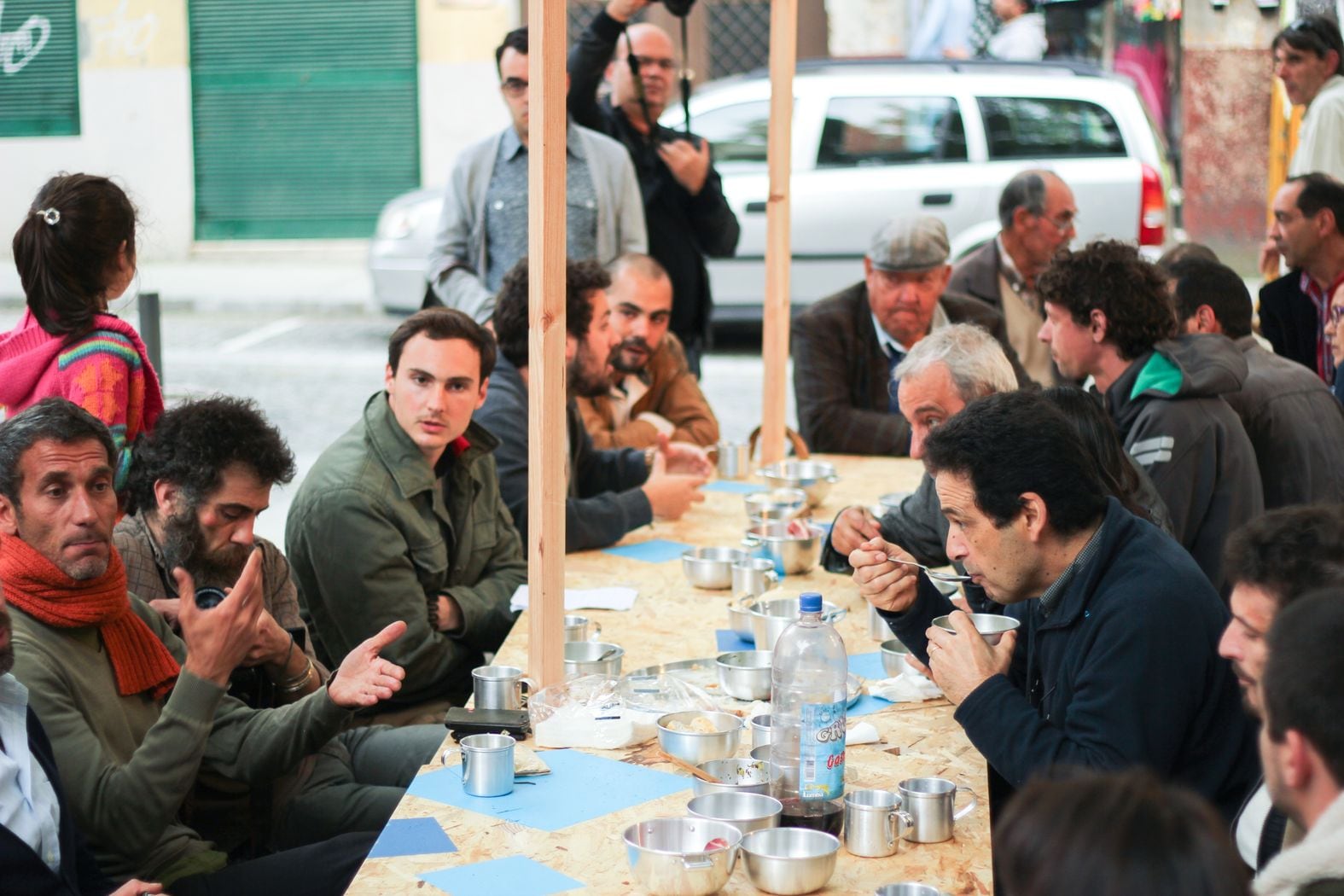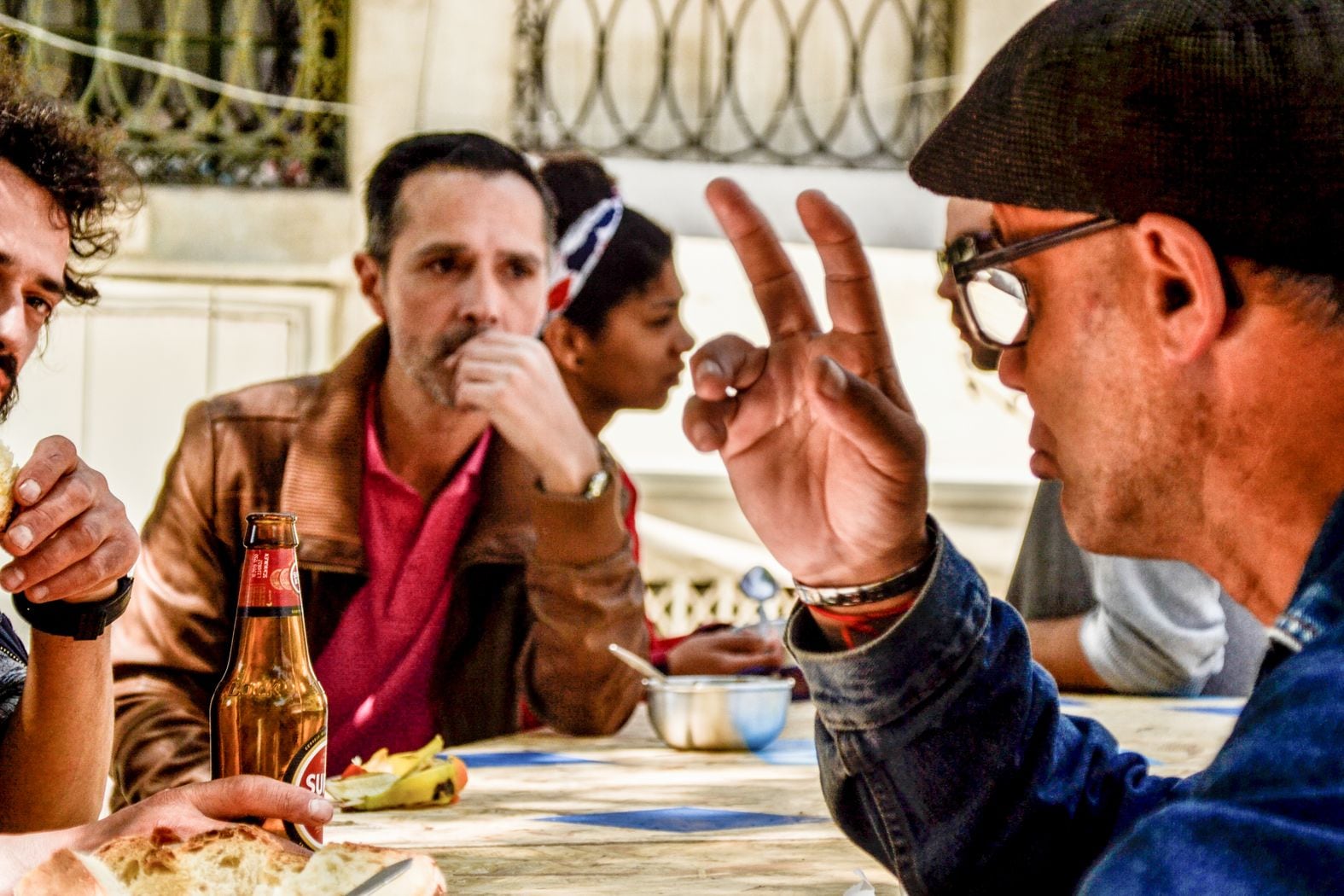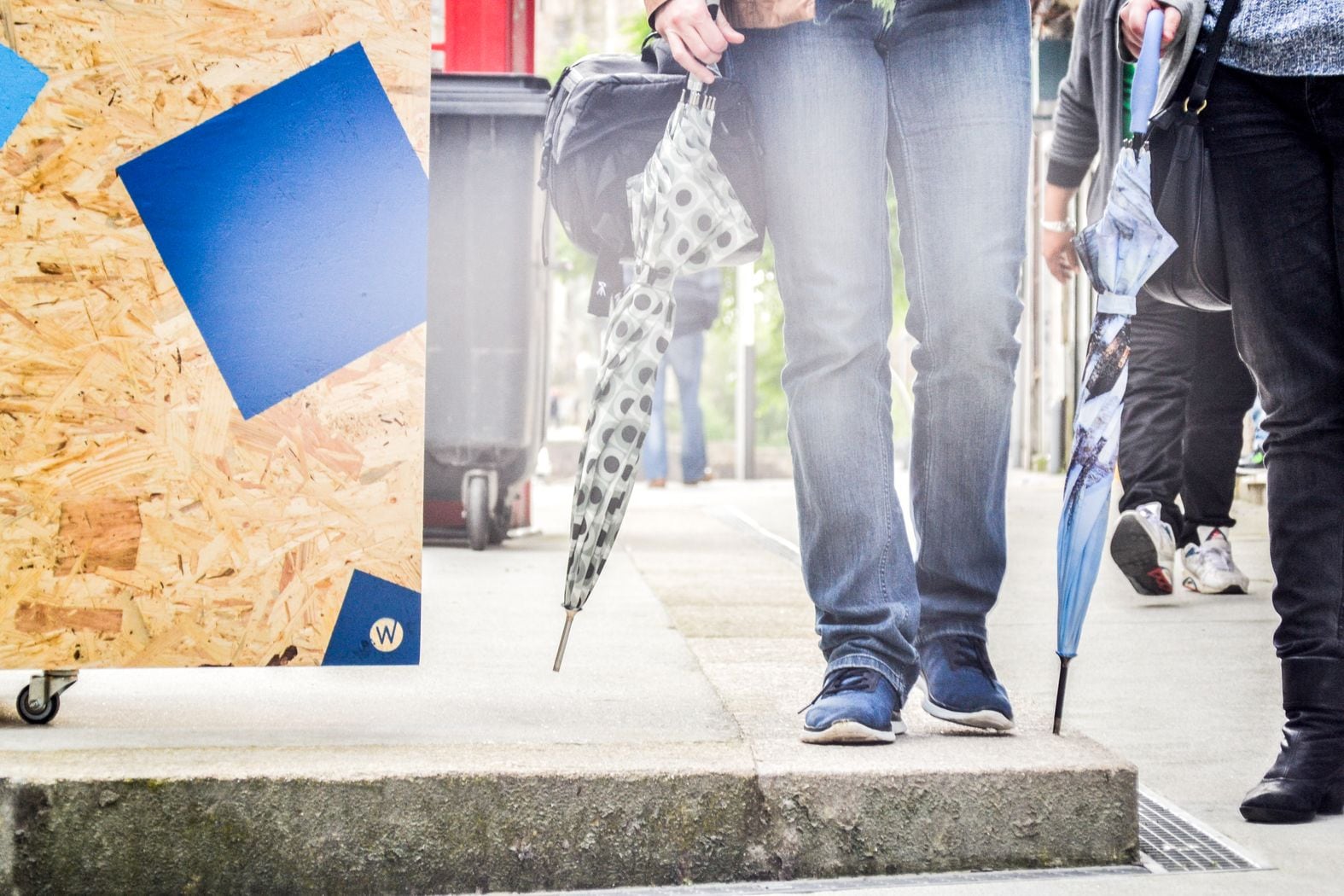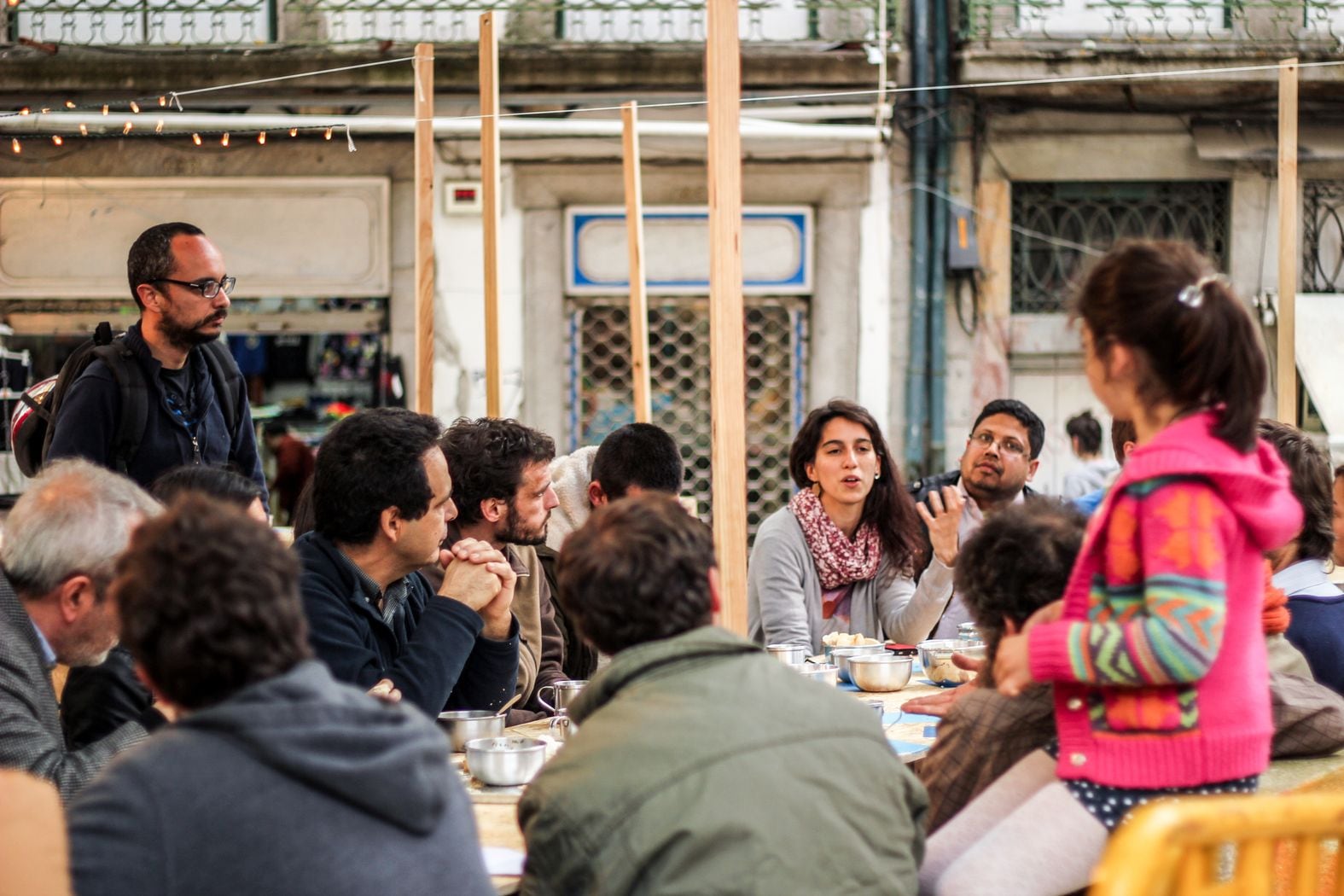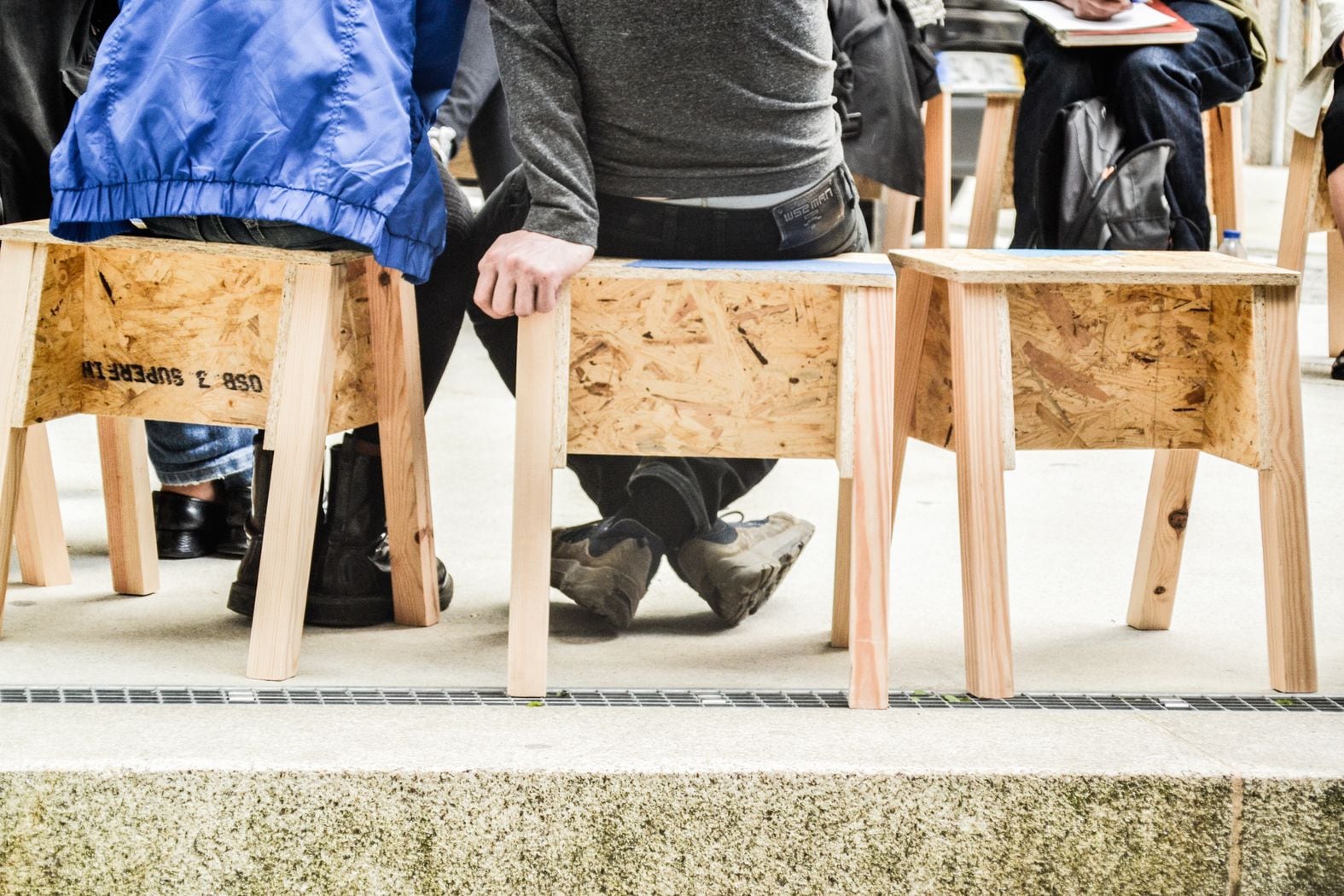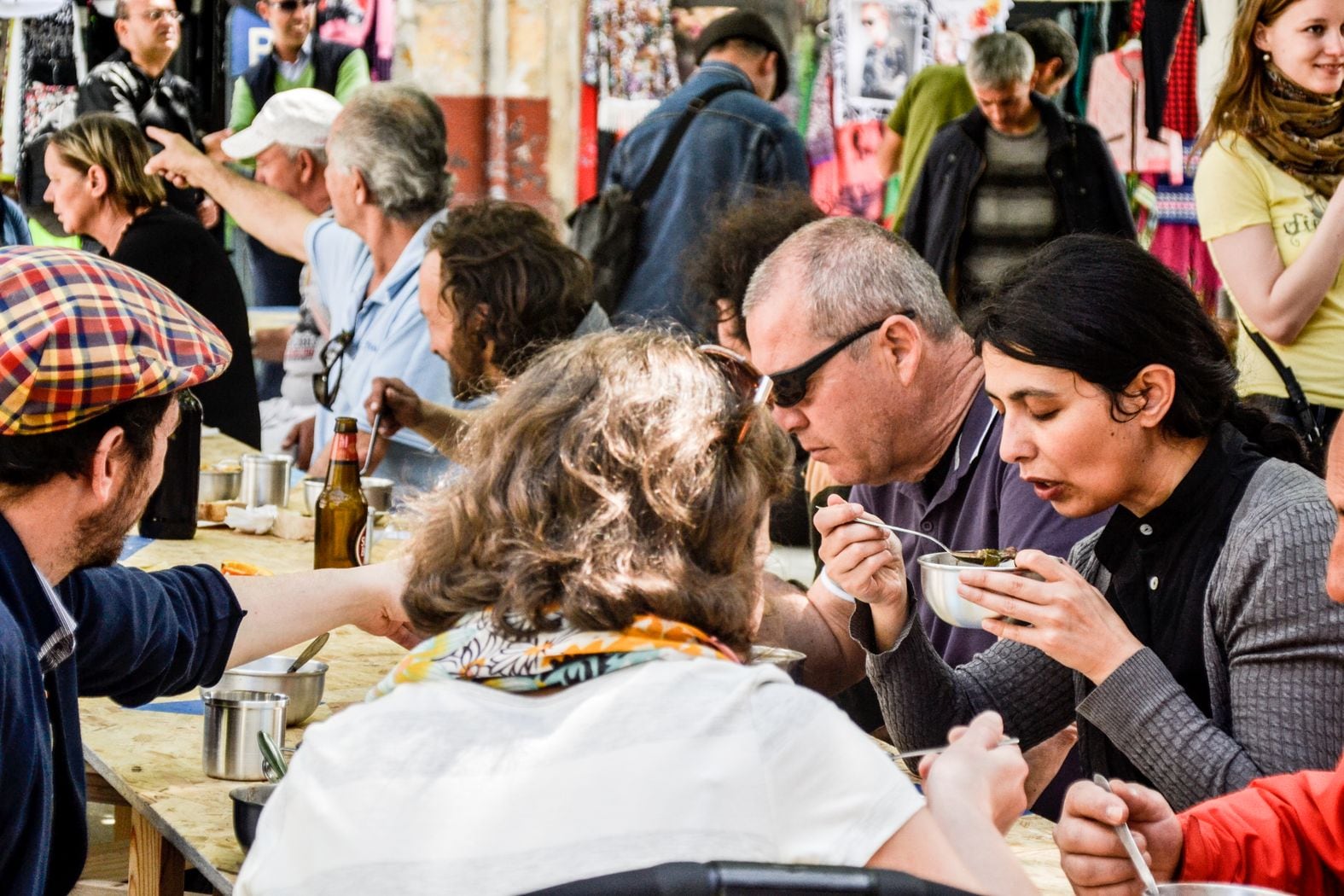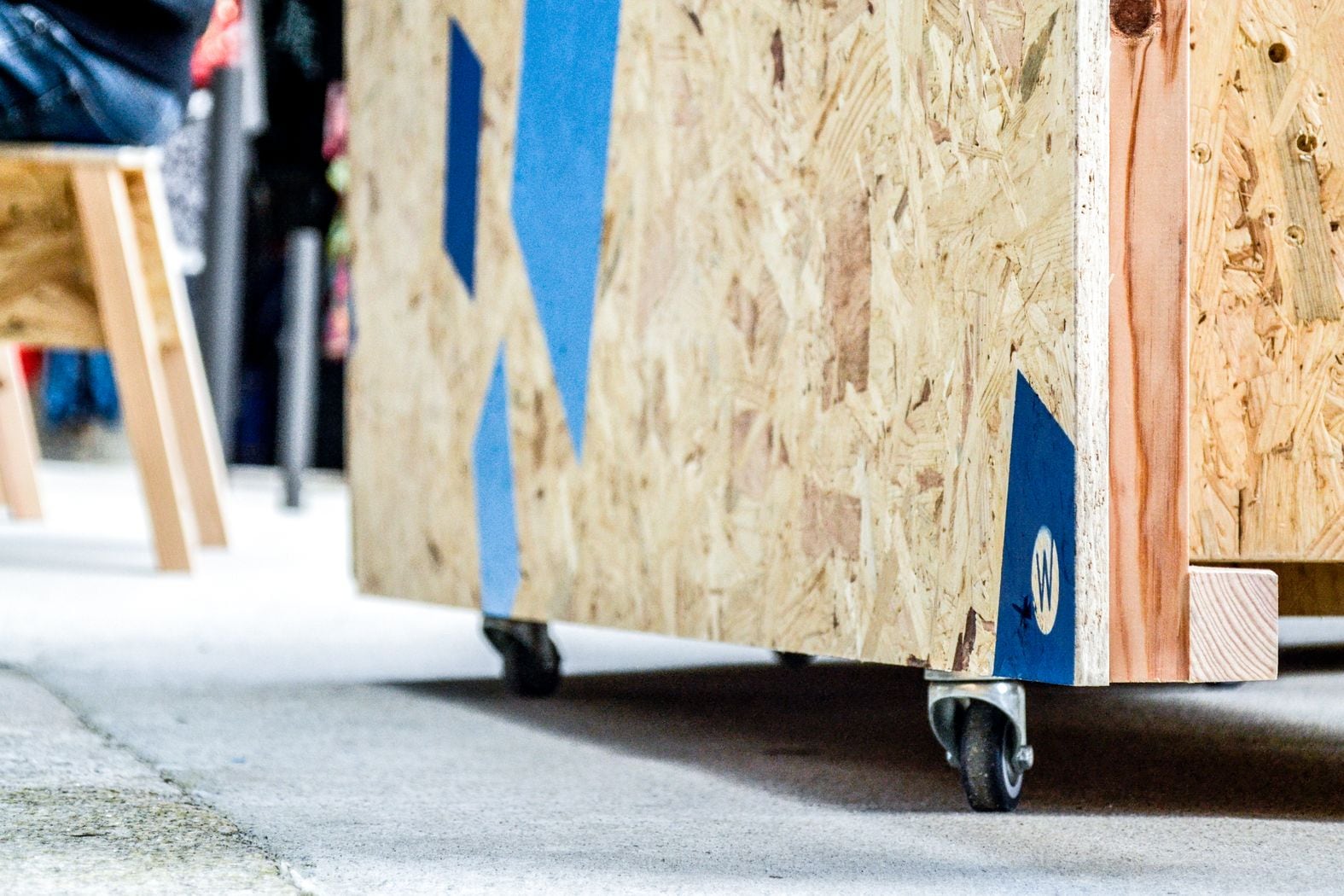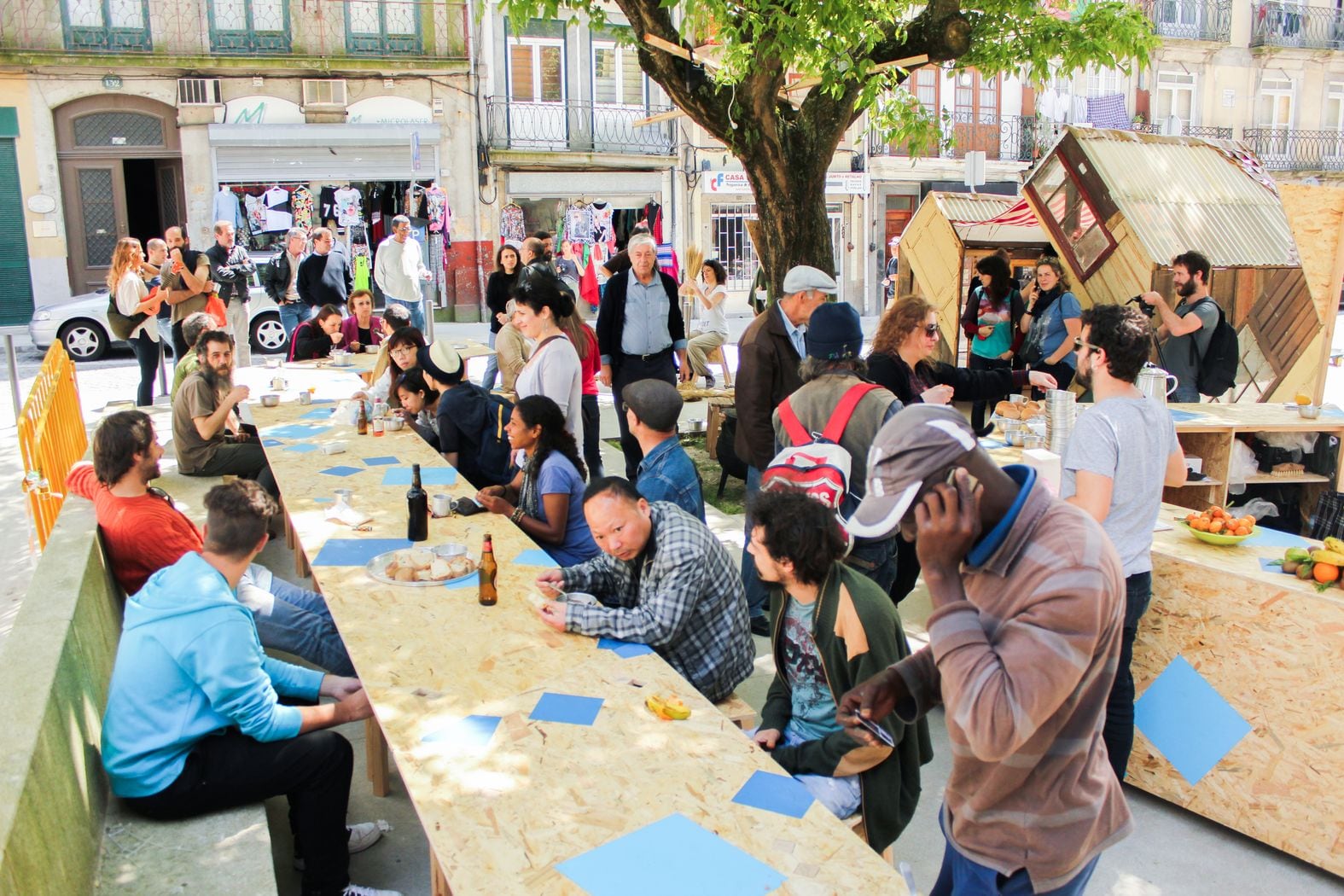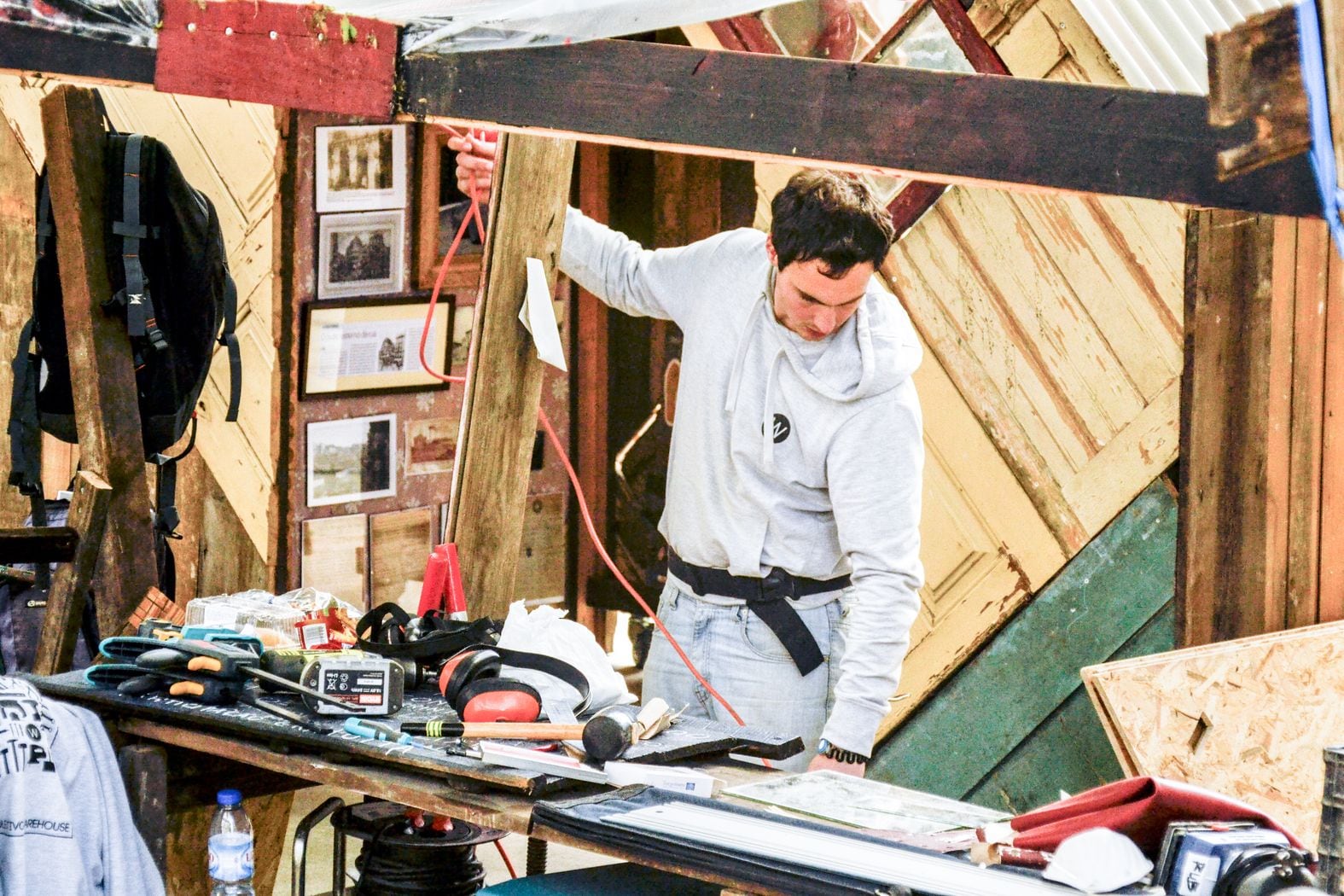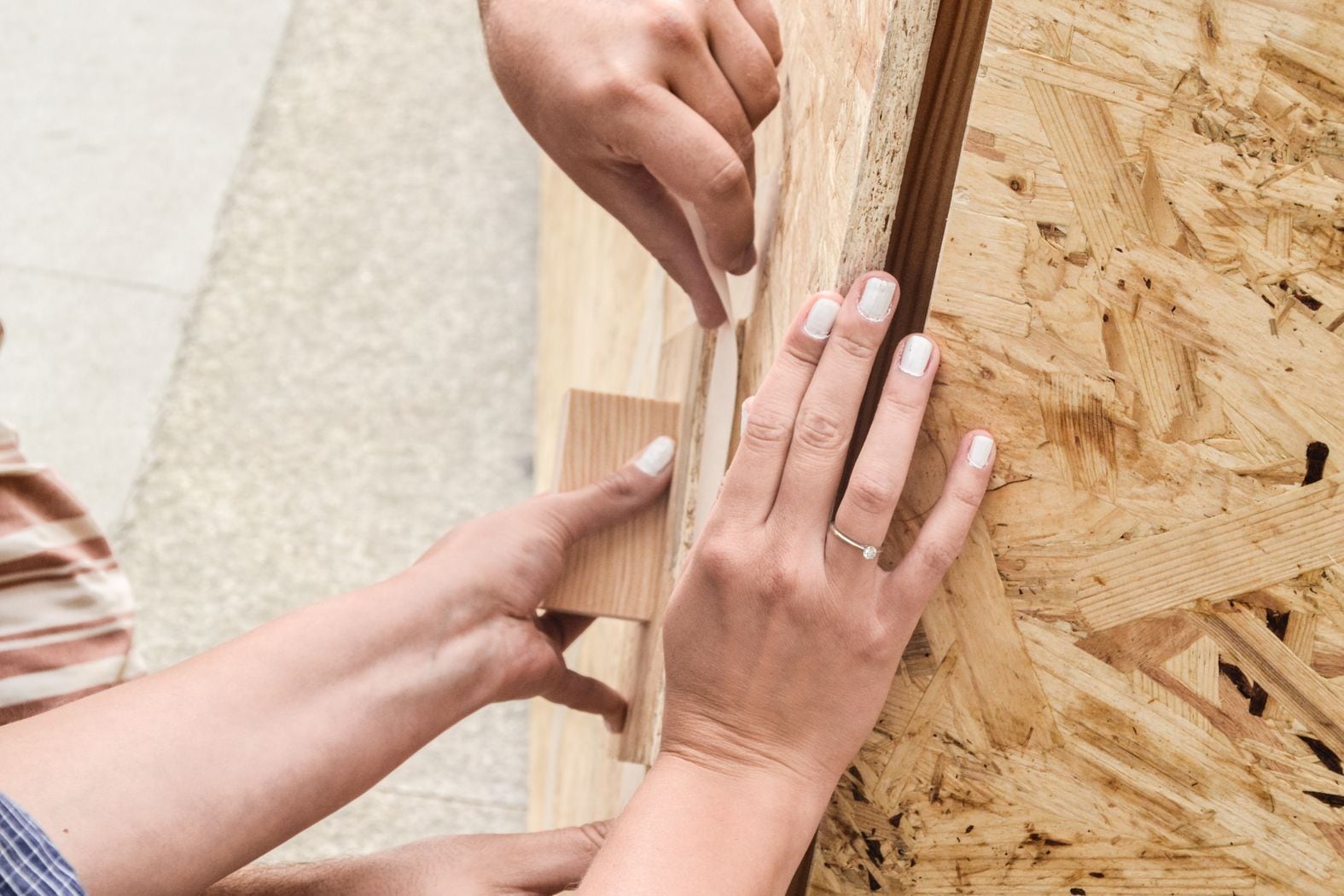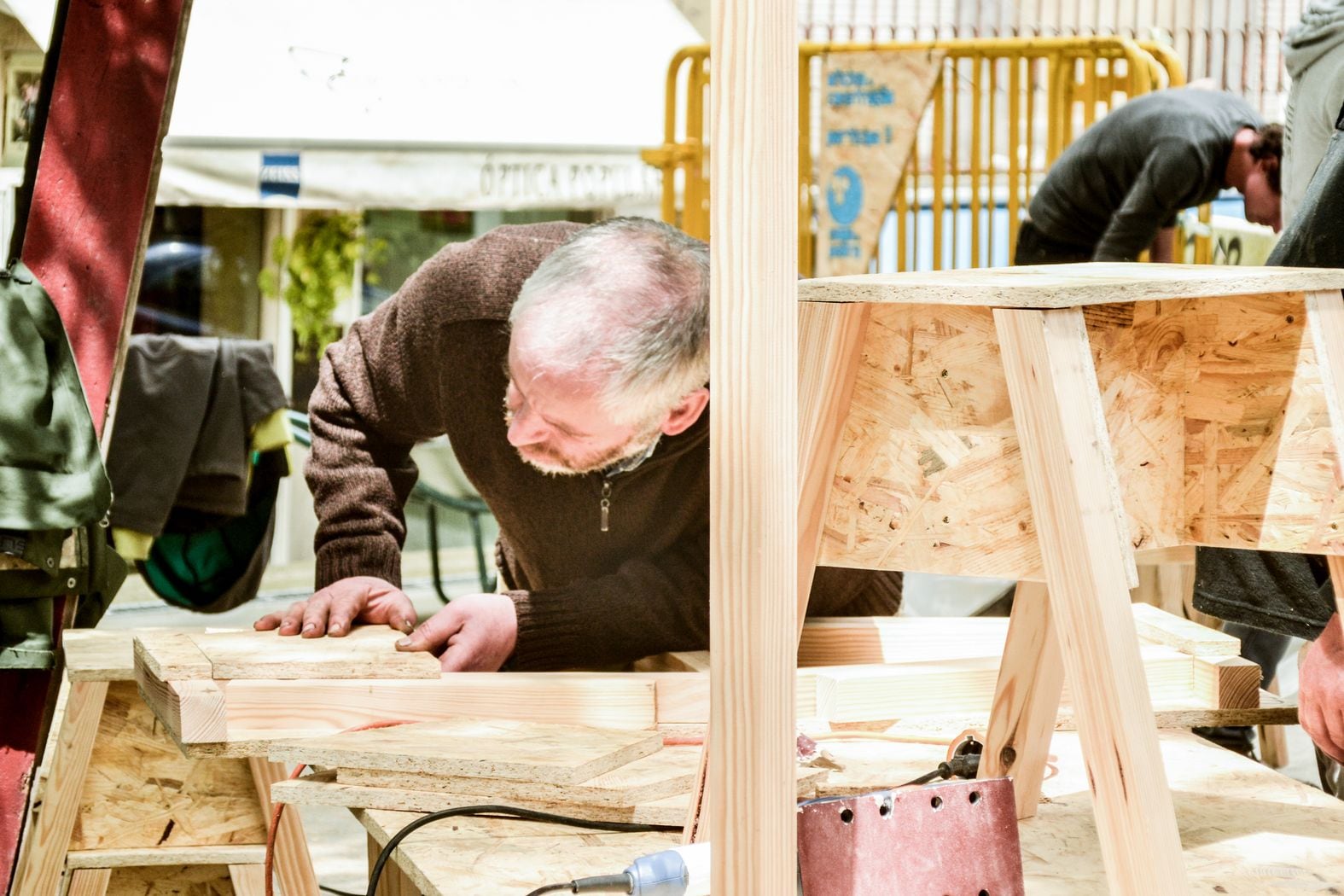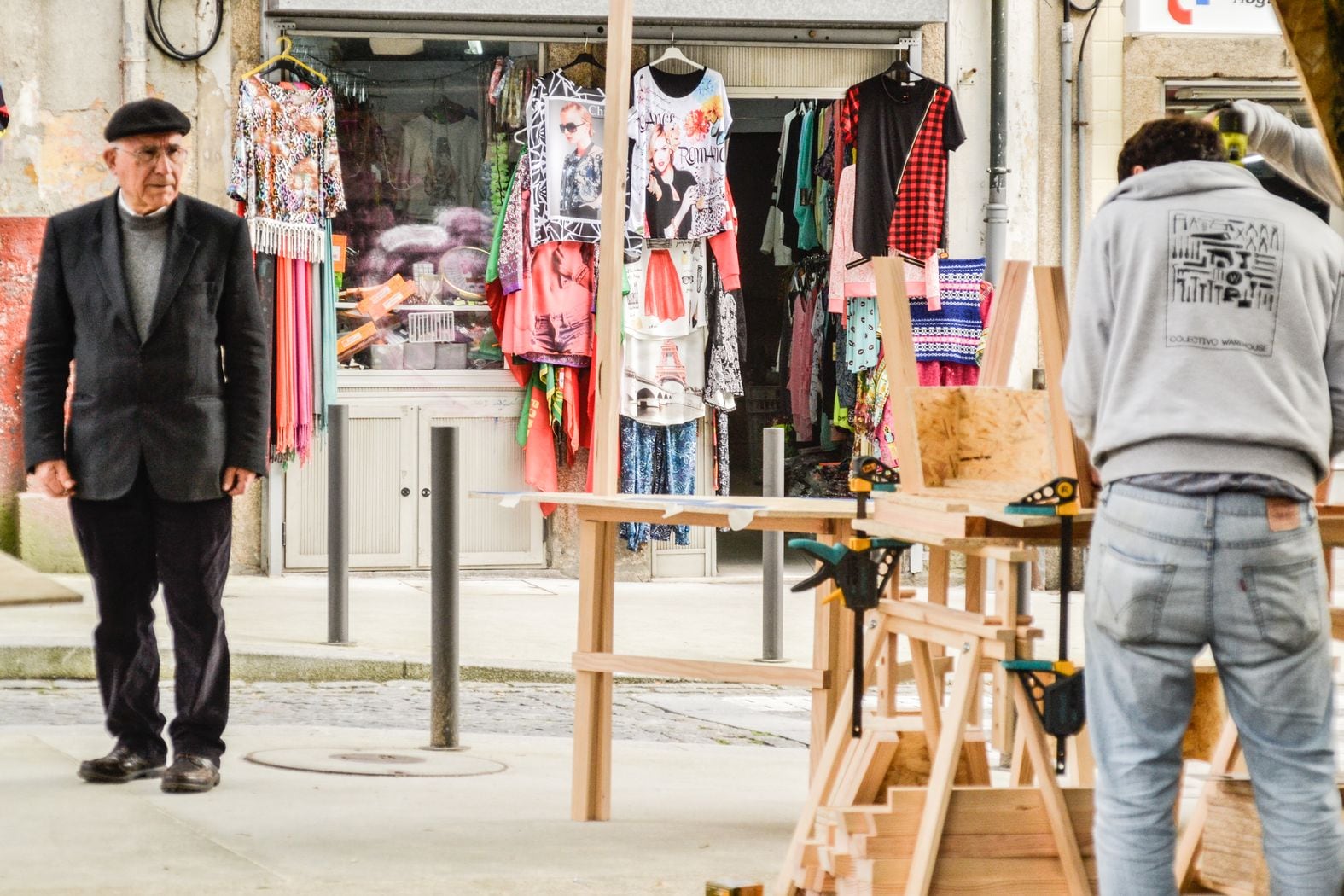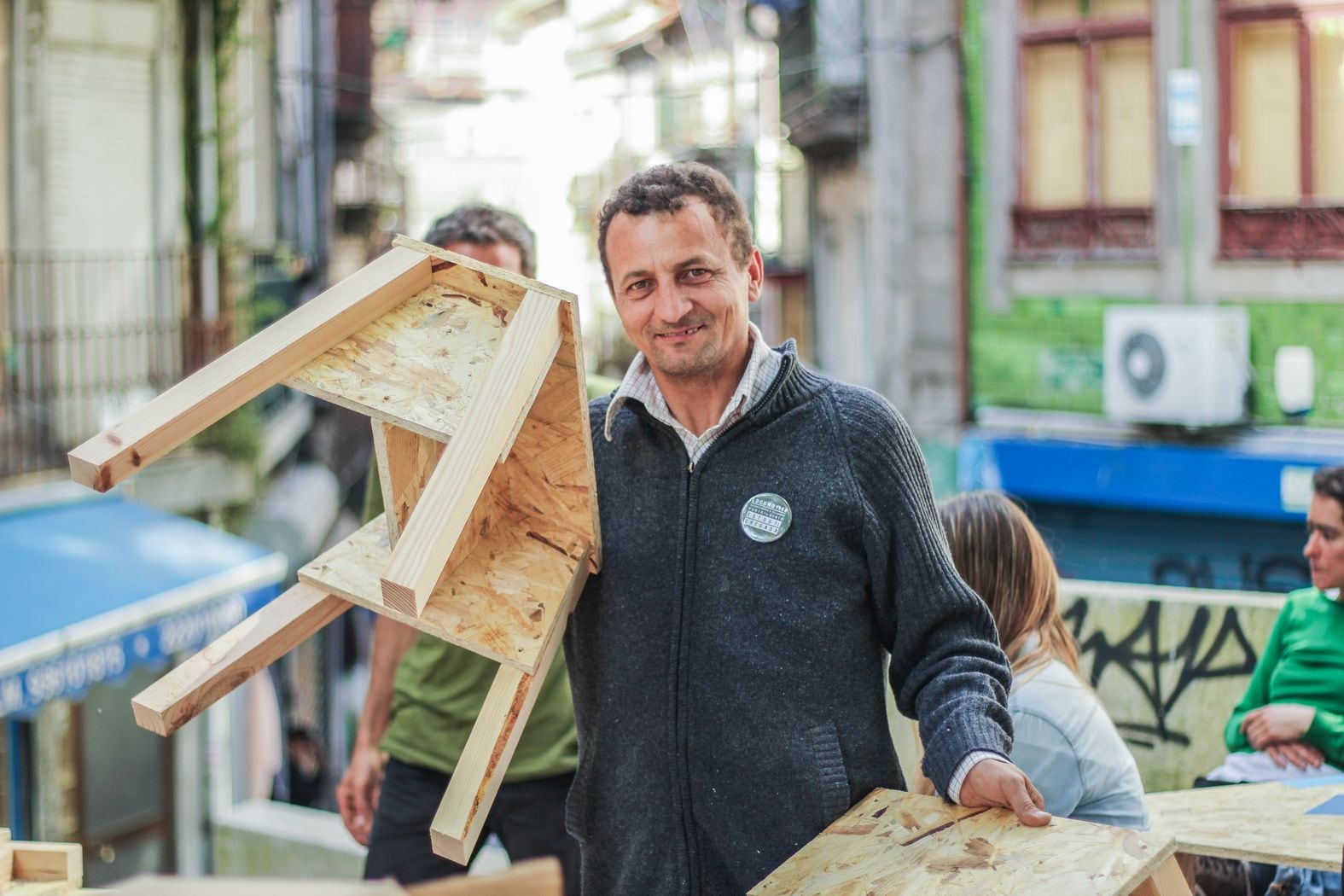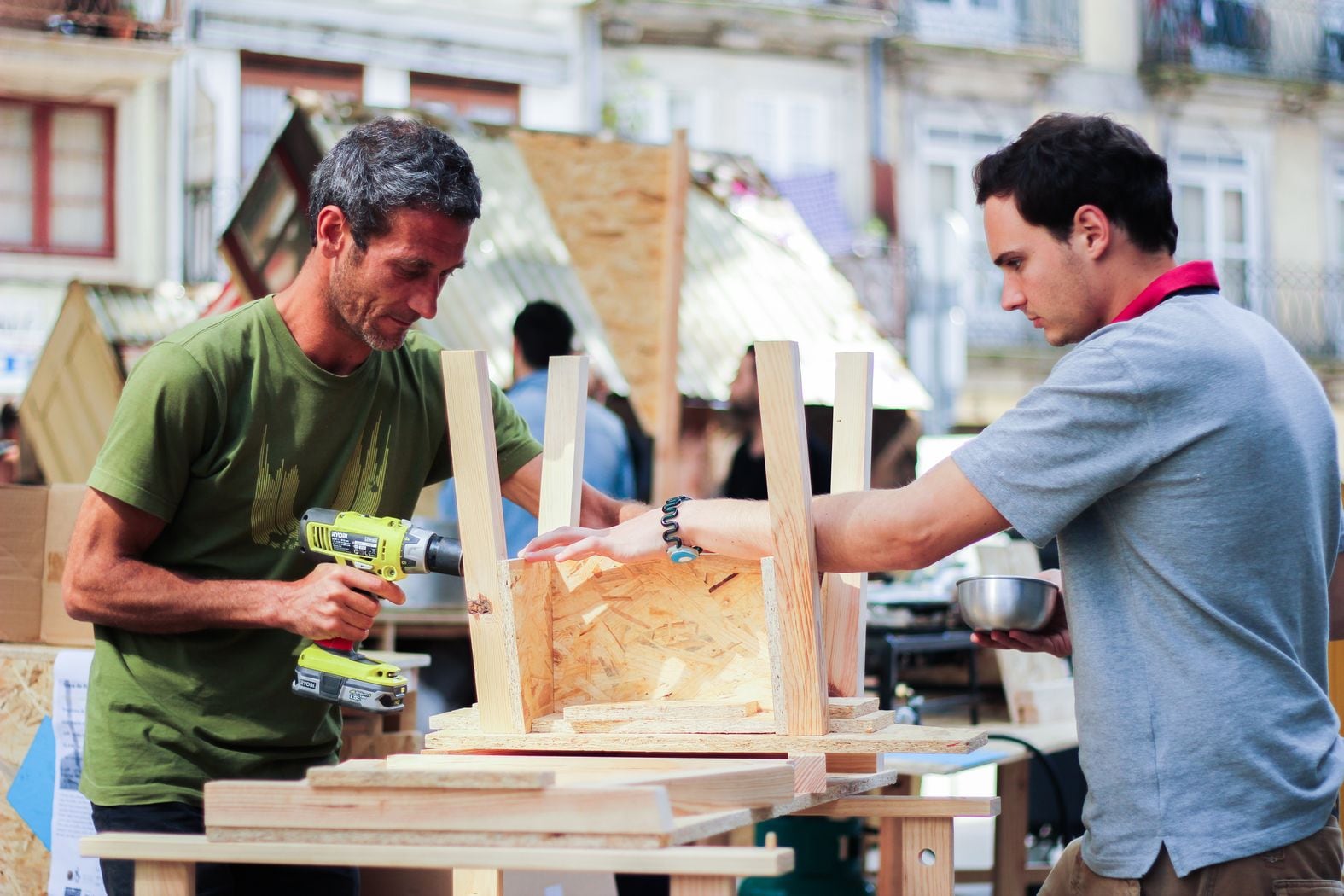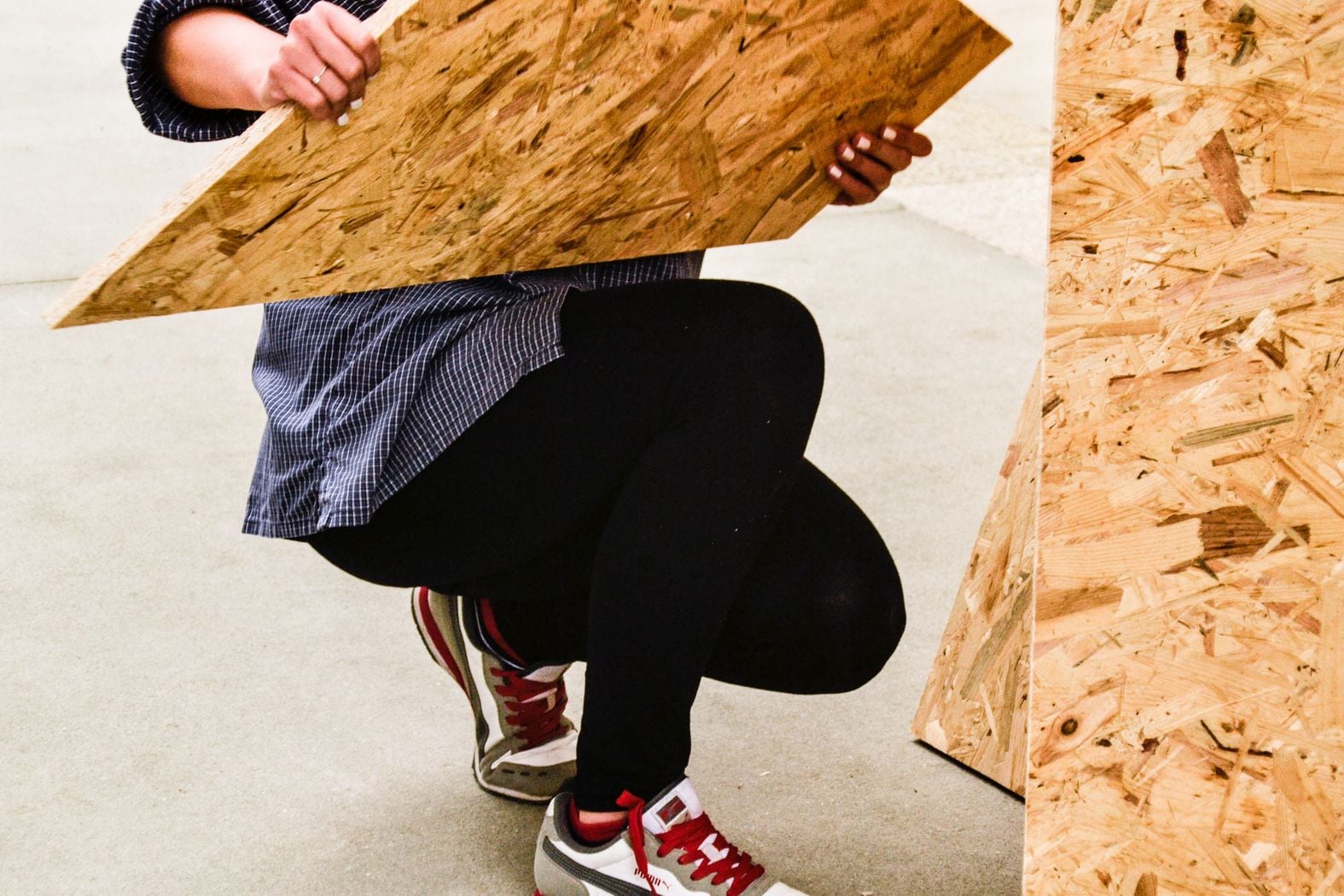Sopa da Pedra project was developed in May 2015 in collaboration with Colectivo Contrabando in Oporto with the aim of reactivating public space through an urban intervention in a weekend event.
During the event, people could share a traditional Portuguese soup with passers-by who wanted to spend some time and interact with the community. The Sopa da Pedra project also focused on creating a debate among all participants in order to involve them in collective thinking.
The goal was to reflect on the future and the effects of this specific intervention and other similar actions that could take place afterwards.
Context
Sopa da Pedra project was integrated in the cultural programme of an event called Locomotiva. The Locomotiva was a project promoted by PortoLazer in order to carry out actions, events and interventions in São Bento, Oporto, in a period of six months.
The goal was to participate and propose actions and interventions that could re-invent and transform places and re-think ways to bring life to this deeply-rooted part of the city.
Aim
The project took place in a small square called Largo da Rua Chã near the São Bento train station. The large Bangladeshi community living there are the main residents of the area and this led us to the idea of finding a way for a common space to be used and shared to promote and create interaction between people.
Warehouse and the Colectivo Contrabando divided the tasks to achieve together the construction of urban furniture and the means to prepare soup in a traditional way.
Construction work lasted a week and several types of equipment were made to be used afterwards when the people there find a purpose for them.
The furniture was carefully designed so it could be easily built with help from the local community and others who joined us there.
From DIY benches to tables and two balconies, everything formed a space for the soup to be served and enjoyed by everyone while the debate triggered a lot of talk and offered an enjoyable evening.
Thus, a proposal was made to equip and energize this space with urban furniture construction with wood as a material for a quick and easy assembly.
The construction and mobility of these objects could be adapted as needed for the planned events and future activities. To do this, the installation of a small “live construction site” was created so that people felt welcome to learn about wood construction for a week.
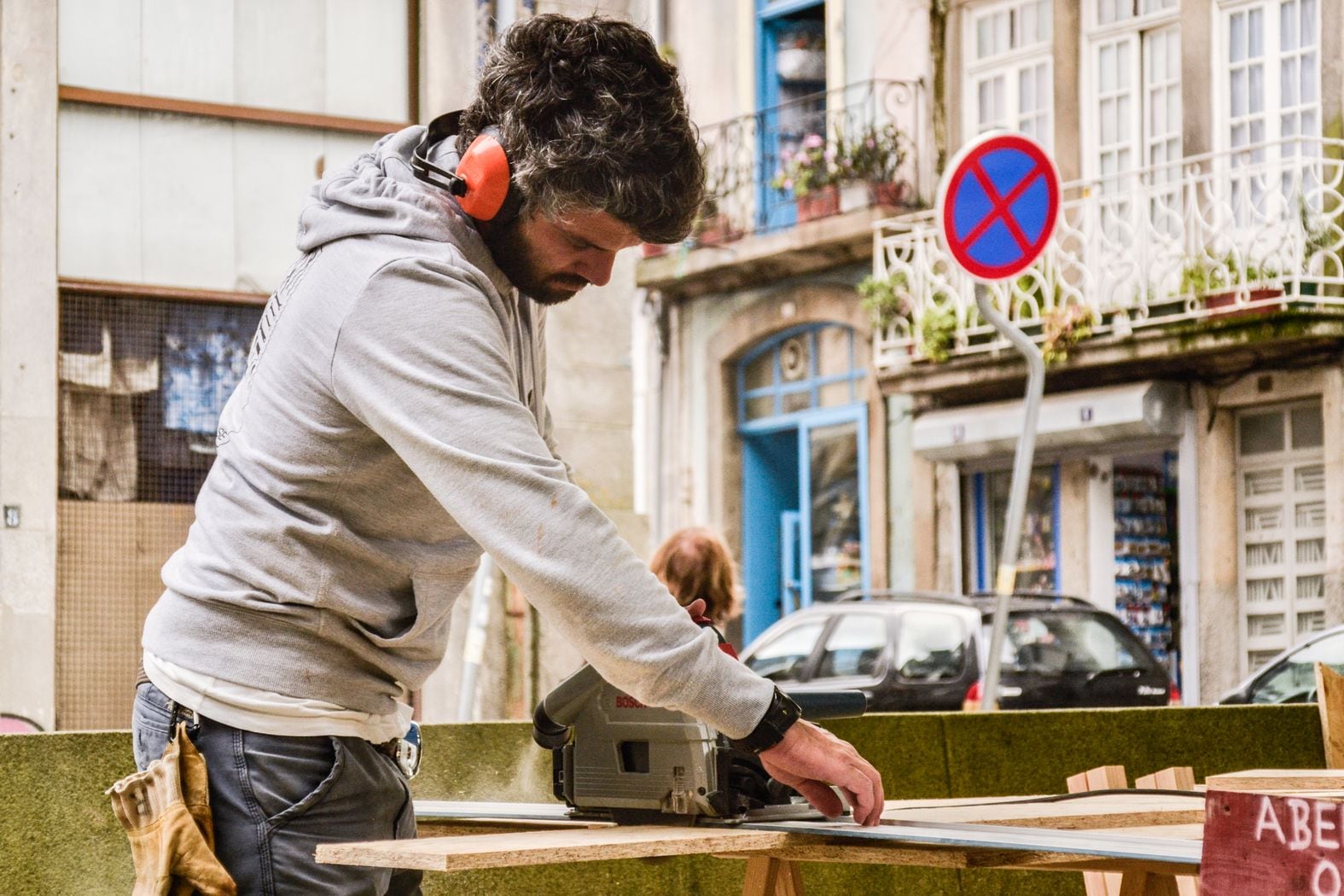
Team: Warehouse + Colectivo Contrabando
Partners: Opium, Porto Lazer, Associação Comunidade do Bangladesh do Porto
With: Rúben Teodoro, Ricardo Morais, Sebastião de Botton, Malin Mohr
Collaborators: Thiago Negrão, Monika Reut, Sr. Guilherme

